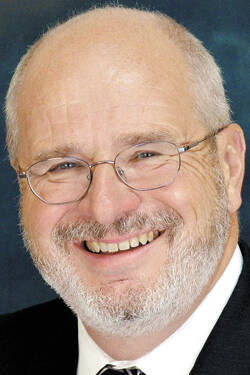The call came in the evening.
I was in my office, putting in some extra hours at the newspaper where I worked in those days. Locked into the story I was writing, I reached for the phone without thinking about it.
This was in the days before cell phones. The land line in my office was the number everyone in my working life used to reach me.
Including readers.
I’d been getting angry phone calls. I’d written columns about rising levels of gun violence in Indianapolis, saying that it was possible the abundant access to firearms might play a part in the city’s increasing bloodshed.
Some gun devotees disagreed, and they dialed my number to let me know that they did.
Several of those conversations were civil.
In them, both parties talked. Both parties listened. Occasionally, we discovered patches of common ground. Other times, we agreed to disagree, but without rancor.
More often, the calls were angry.
They started the discussion screaming and grew louder the longer we talked. Many yelled at me for a few minutes, then slammed the phone down.
This call was different.
As soon as I brought the phone to my ear, I heard a male voice growl my last name before I even said a word.
Then there was a series of loud bangs.
Someone was firing a gun close to the phone.
In all, there were six shots before the caller broke the connection.
I sat there for a couple of long moments holding the phone, trying to determine whether what I’d just heard actually had happened. I decided that it wasn’t a figment of my imagination, just a reminder that even unstable people could figure out how to dial a number.
Then I replaced the phone in its cradle and went back to work.
For years, I hadn’t thought much about that call. It seemed a product of an era in which caller identification did not yet exist.
Then, the cranks and the crackpots liked the anonymity of making an angry phone call, secure in the knowledge that they never would be held accountable for the loony things they said. They liked the shadows because they sensed, accurately, that their ideas and actions wouldn’t stand up well if they were dragged into the light.
Recent events, though, have reminded me of that long-ago night in my newspaper office.
The trolls no longer use the phone to do their skulking. They take it online.
They use social media.
They post nasty remarks, most of which are at best ill-informed and at worst are completely untrue. They engage in name-calling.
And, often, so often, they try to shout down or shut down anyone who questions them or, heaven forbid, disagrees with them. They want to intimidate other people into shutting up.
I’ve always wondered about the mindset of folks who approach discussions in that fashion. I doubt they grasp the fact that by trying to bully others into being quiet they’re implicitly admitting they’ve lost the argument.
If they had an actual case to make, one grounded in fact so that it was likely to be persuasive, they wouldn’t have to act like snickering adolescents or B-movie villains. They’d present their arguments, and the power of their reasoning would carry the day.
But because they can’t do that, they resort to other tactics.
What they never seem to understand is how counterproductive their approach is. It isn’t likely to have the effect they want.
Before that phone call in my newspaper office, I didn’t really know how I felt about the proliferation of guns in America.
But that one guy firing his weapon close to the phone altered my thinking.
I thought that a guy who used a gun not to hunt or defend himself but rather to silence someone with whom he disagrees probably shouldn’t have access to deadly weapons. It wasn’t the gun-control advocates who changed my mind. It was a guy who believed he was serving the cause of gun owners.
The same goes now for all the people trying to scream over anyone who points out, say, that cats and dogs aren’t being killed for food by immigrants in Springfield, Ohio. They think they can prevent free people from asking questions and thinking for themselves.
They can’t.
Because this is—still—a free country.
John Krull is director of Franklin College’s Pulliam School of Journalism and publisher of TheStatehouseFile.com, a news website powered by Franklin College journalism students. The views expressed are those of the author only and should not be attributed to Franklin College. Send comments to [email protected].





